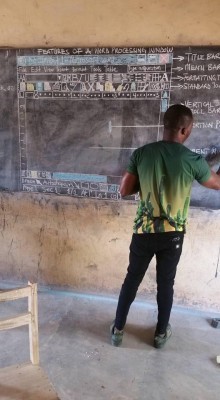
THE first generation builds, the second generation inherits and the third generation demolishes.” Chinese saying.
That bit of folk wisdom credited to the Chinese had been with regard to business enterprises or other organisations. It is not clear if it applies to private universities. Less than 50 separate universities are listed under China, with a population of over one billion; Nigeria with one sixth of the population already has 128; and more are on the way. But, I can imagine that the Chinese universities have satellite campuses to handle the millions of kids university-bound in that country.
However, the Chinese must be really fortunate if their successful businesses get to the third generation before collapsing like a sand castle built by a kid on the seashore. No Nigerian business, to the best of my knowledge had gone past the first generation. Once the founder dies, the business goes into sunset. Lest you are wondering what that has to do with the sustainability of private universities, let me spell it out for you.
Let me also remind you that what brought this topic to the front burner of our concerns about Nigerian universities was the disclosure that St Paul’s College (University), Virginia, U.S.A, which Nigeria’s current Minister of Aviation, Princess Oduah, allegedly attended, was in the process of closing down when media people went to verify if she actually collected an MBA from there.
The important part of the story rests in the fact that St Paul’s folded up. So have several private universities started and funded by individuals, who at the height of their financial achievements had started universities to immortalize themselves. But, the sad history of American private university education rests on the fact that once the fortune on which they were established gets exhausted or the endowment funds fail to keep pace with rapid changes in the economy, they lose ground to competitors and eventually have to close down.
Similar Posts:
Today, in Nigeria, there is not a single one of our private universities which does not depend on the goodwill, as well as good intentions of its founder. At the moment, there is no Nigerian university whose founder has died; so we have no example to which we can point about what happens thereafter.
But, we have the examples of what had happened to other Nigerian business empires which could have provided the funds to establish universities if the wealthy individuals had been allowed to establish private universities before 1999. By then, Sir Odumegwu Ojukwu, perhaps, comparatively, the richest Nigerian ever; Mr. Da Rocha in Lagos, whose sources of wealth remains shrouded in mystery till today; Alhaji Dantata of the 1950s and Chief M.K.O. Abiola had all passed on.
Granted, history only tells us what had happened in the past; it never quite tells us what might have happened. But, given the collapse of those financial empires, or their slide down the greasy pole of fortune, one can ask a pertinent question: Would the descendants of Ojukwu, Da Rocha, Dantata or Abiola, have had the zeal or the funds or both to continue the universities today? Starting a university is not an undertaking for mere millionaires in any age.
It is a business quite unlike others because its products, generally lumped together as knowledge, are not static. In fact, everything about them is so dynamic, calling for new investments in everything from buildings to equipment and manpower at a rapid rate.


